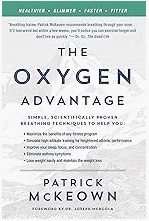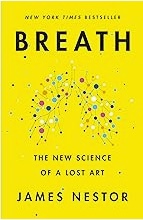Qigong Breathing
How to Harness the Power of Your Breath
Breathwork for Chronic Stress and Mental Health: Does Choosing a Specific Technique Matter? This review offers a comprehensive overview and comparison of the most widely practiced breathing techniques. PMC12372116.
Breathe better, live better: the science of slow breathing and heart rate variability. PMID: 40252198.
Slow-Breathing Curriculum for Stress Reduction in High School Students: Lessons Learned From a Feasibility Pilot. PMC9397716.
Veterans Administration. Live Whole Health #143: Breathing Practice.
Slow Breathing Is the Fastest Way To Calm Your Brain and Body
How Does Breathing Affect Your Brain?
The Profound Power of Breathing.
The physiological effects of slow breathing in the healthy human. PMC5709795.
Breathe through the nose! Modern research confirms the wisdom of the yoga tradition
Ageing of the Diaphragm Muscle. PMC7011578.
Respiratory Regulation & Interactions With Neuro-Cognitive Circuitry. PMID: 32027875.
Understanding Mind-Body Disciplines: A Pilot Study of Breathing and Dynamic Muscle Contraction on Autonomic Nervous System Reactivity. PMID: 31347763.
Nasal Respiration Entrains Human Limbic Oscillations and Modulates Cognitive Function. PMC5148230.
Impact of diaphragm function parameters on balance maintenance. PMC6310257.
How breathing can help you make better decisions: Two studies on the effects of breathing patterns on heart rate variability and decision-making in business cases. PMID: 30826382.
The Influence of Breathing on the Central Nervous System. PMC6070065.
The Effect of Diaphragmatic Breathing on Attention, Negative Affect and Stress in Healthy Adults. PMC5455070.
Motivational Non-directive Resonance Breathing as a Treatment for Chronic Widespread Pain. PMC6579813.



